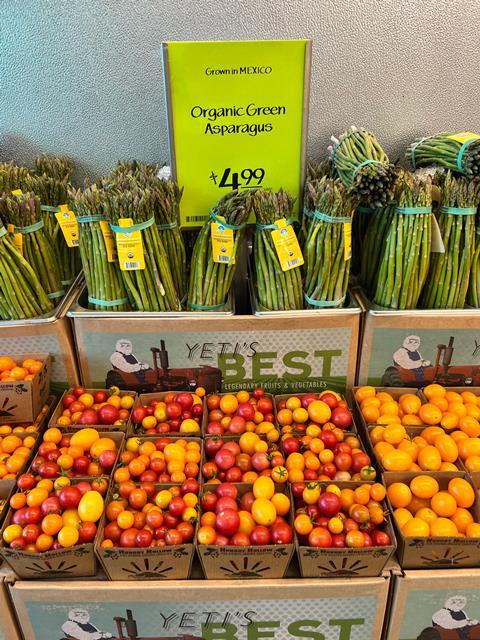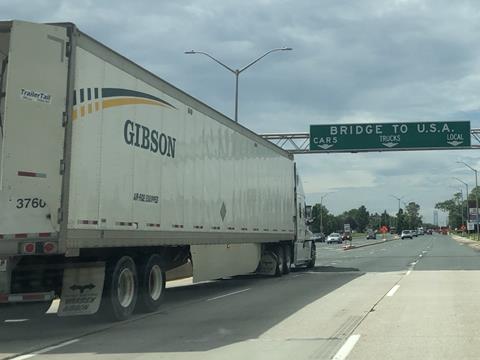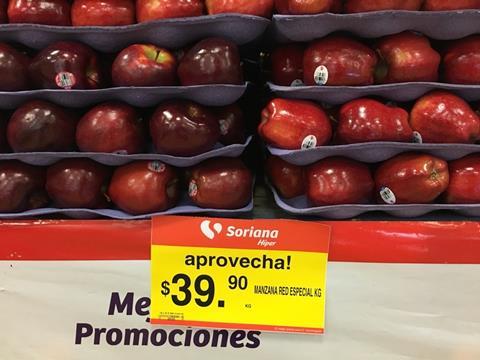Prices and healthy diets under threat as escalating trade dispute casts shadow over North American market

Latest: Trump temporarily halts tariff threat against Mexico and Canada
North America’s importers are “concerned” about the impact that US President Donald Trump’s 25 per cent tariffs on all imported products from Canada and Mexico could have on fruit and vegetable prices, the health of consumers, and the long-term sustainability of the region’s fresh produce trade.
In response to the move, Canada plans to introduce its own 25 per cent tariff on US products, while Mexico says it will push tariff and non-tariff measures.
Allison Moore, executive vice-president of the Fresh Produce Association of the Americas (FPAA), told Fruitnet her organisation was “still analysing everything”, but admitted her organisation’s members had serious doubts over how the dispute might affect their ability to supply enough produce when domestic supply isn’t available.
FPAA represents North American companies involved in the import, distribution, and marketing of fresh fruits and vegetables, primarily from Mexico into the United States and Canada.
“As American companies who distribute fresh fruits and vegetables, members of the FPAA are important partners in President Trump’s Make America Healthy Again initiative. President Trump has been vocal about bringing down the price of groceries for American consumers,” the group commented.
“As providers of essential commodities like fresh fruits and vegetables, our members are concerned about how tariffs would impact their ability to serve customers, and in turn what this would mean for food prices and the health of America.”
Californian produce trader John Pandol argued that a tax on imports would be inconsistent with Trump’s policies on consumer health. “In US food supply, proteins and grains are largely domestic, seafood is mostly imported, and produce is about half and half,” he said. “An American diet with less fresh produce and seafood, and heavier in meats, grains and preserved, processed and ultra-processed foods, is not what the doctor ordered.”

More expensive
In a comment piece for Fruitnet, former Pear Bureau Northwest CEO Kevin Moffitt said the negative consequences in terms of US market prices could soon be apparent. “Fruit and veg prices could be impacted very quickly, making popular imported berries and avocados from Mexico more expensive to American consumers for example,” he wrote.
US fruit exporters also stood to lose out as a result of retaliatory duties imposed by Canada and Mexico in response to the US import tariffs, he suggested.
“I would estimate that these two countries have imported 90 per cent of the fresh pears shipped outside of the US this season to date,” he said. “So a heavy counter-duty on pears from Mexico and or Canada would be concerning to the industry.”
Uncertain future
Pandol said importers, exporters and retailers across the US were waiting to see what happened next. “The mood is one of uncertainty and speculation, and hopefulness that the adults in the back room work something out,” he commented.
Much of the uncertainty, he added, came from enormous pressure on the industry to cover the increasing cost of food production and distribution, at a time when the public were “weary and hypersensitive” to price increases. For that reason, he predicted, the dispute – including Trump’s 10 per cent duty on Chinese imports – would not only affect consumer prices directly.
“While most of the focus is on produce items we import and export, [remember that] American agriculture imports inputs like Canadian lumber for pallets, petroleum is imported from both [Canada and Mexico], and many of our agrochemicals come from China.”

Bad for business
For Pandol, the disruption can only be bad news for the fruit and veg trade. “The produce business doesn’t respond well to uncertainty,” he explained. “Take the recently threatened port strike on the US East Coast – traders held back supply and didn’t commit to retail promotions. Rumour-driven pricing kept wholesale and retail prices high, but when the strike didn’t materialise, there was more older supply than there should have been, and less retail promotion on imported items.
“The retail business is not a [tap] one turns on immediately. It’s more like turning on the hot water in a shower that takes three weeks get to the right temperature.”
In its statement, the FPAA also expressed doubts about Trump’s theory that tariffs would help to boost border security. “Instead, FPAA supports increased use of non-intrusive inspection technologies, such as high-tech X-ray equipment scanning commercial trucks crossing through ports of entry, as well as more Customs and Border Protection officers to enforce security at our ports of entry, while facilitating the movement of legitimate goods and travellers.”











